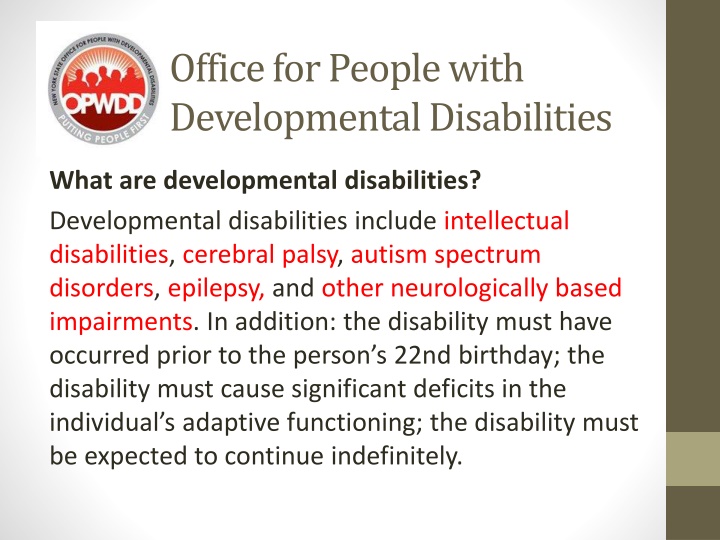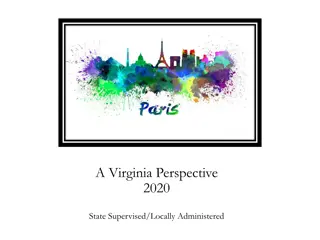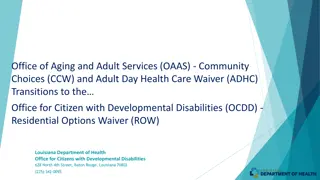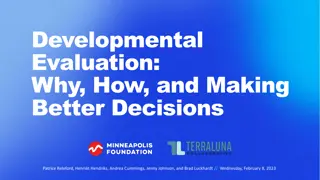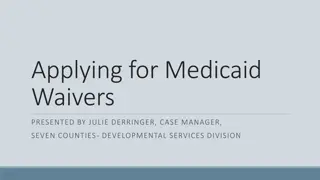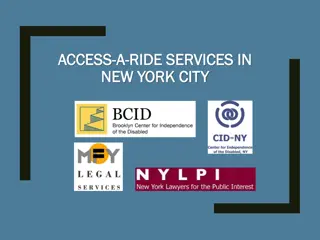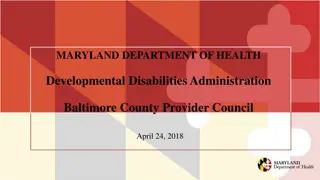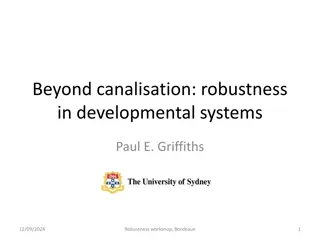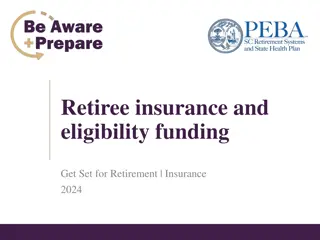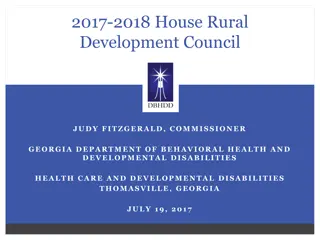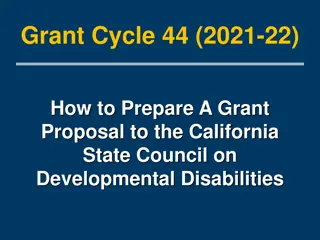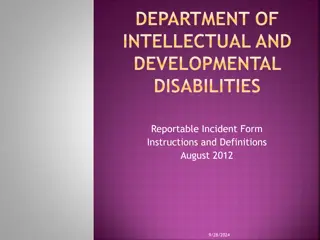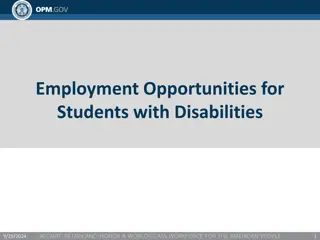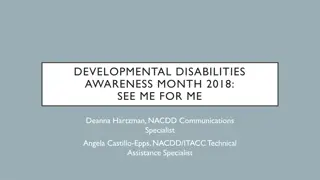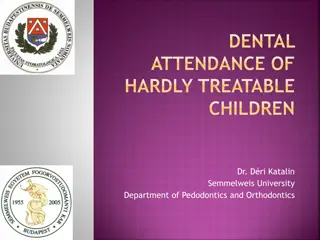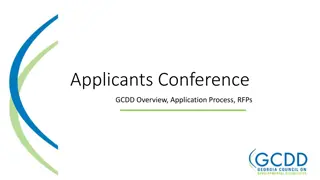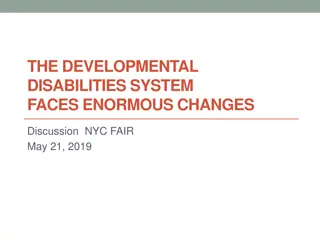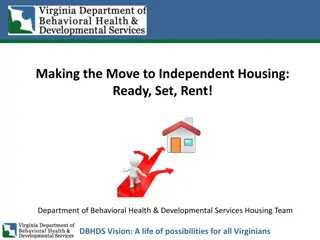Developmental Disabilities Eligibility Process" (54 characters)
Developmental disabilities encompass conditions like intellectual disabilities, cerebral palsy, autism, and more. Learn about eligibility requirements for OPWDD services, assessment steps, and examples. Referred students with various disabilities are assessed based on adaptive functioning scores, parent consultation, testing compliance, and referral protocols. Check out the provided examples to understand how eligibility determination unfolds in the context of developmental disabilities. (394 characters)
Download Presentation

Please find below an Image/Link to download the presentation.
The content on the website is provided AS IS for your information and personal use only. It may not be sold, licensed, or shared on other websites without obtaining consent from the author.If you encounter any issues during the download, it is possible that the publisher has removed the file from their server.
You are allowed to download the files provided on this website for personal or commercial use, subject to the condition that they are used lawfully. All files are the property of their respective owners.
The content on the website is provided AS IS for your information and personal use only. It may not be sold, licensed, or shared on other websites without obtaining consent from the author.
E N D
Presentation Transcript
Office for People with Developmental Disabilities What are developmental disabilities? Developmental disabilities include intellectual disabilities, cerebral palsy, autism spectrum disorders, epilepsy, and other neurologically based impairments. In addition: the disability must have occurred prior to the person s 22nd birthday; the disability must cause significant deficits in the individual s adaptive functioning; the disability must be expected to continue indefinitely.
What is required for a person to be eligible for OPWDD services? This is what the New York State Mental Hygiene Law requires in order to be eligible for OPWDD services: 1) The presence of a developmental disability that is described by certain qualifying diagnoses, or conditions 2) The disability has occurred before the person reached age twenty-two 3) The disability can be expected to continue indefinitely, or permanently 4) The disability causes a substantial handicap to a person s ability to function normally in society
Here is a general way to start: I HAVE PRIORITIZED STUDENTS BY REEVAL DATE AND THOSE WHO ARE EXITING THIS YEAR highlighted in yellow Step 1 -Students with TBI, Autism and MD, I would look at that their previous adaptive scores and see if they are 70 or below. If so, proceed to Step 2 (you are not making a determination based on IQ, only Adaptive) -For your students with ID, if their adaptive is 70 or below, proceed to Step 2 or If their IQ is below 60, proceed to Step 2 (assumed their adaptive would be below 70)
Step 2 Speak with the parents to determine if they would like to pursue eligibility. If yes, proceed to Step 3 Step 3 -Make sure testing is completed according to OPWDD requirements (types of tests and within 12 months) Step 4 -If new testing supports eligibility requirements, refer to Ways to refer an individual to the DDRO
OPWDD -example Vineland Date-Score IQ Testing needed Y/N Yes exiting this year NAME GRADE Reeval Disability Date - Score Jose 12 3/17 ID 2/10 69 Marielena 10 4/16 ID 5/07 58 5/07 - 69 Yes No - adaptive too high Jose 8 1/16 Autism 4/12 79 4/12 - 66 Carlos 10 5/17 ID 11/11 65 11/11 61 Yes in 2017 Ricardo 12 1/16 ID 11/12 - 57 11/12 - 68 Yes Juan 8 1/17 TBI 1/11 64 1/11 61 Yes in 2017 Testing those students shaded in green for this school
Please keep me informed throughout the process regarding: Students referred Students found eligible Students denied Students not referred and brief reason why (ie. parents refused; Adaptive score above 70) Students who have been previously determined eligible
My Information Email: pamelaj.sacchitella@rcsdk12.org Phone: 324-9770 ext.2330
